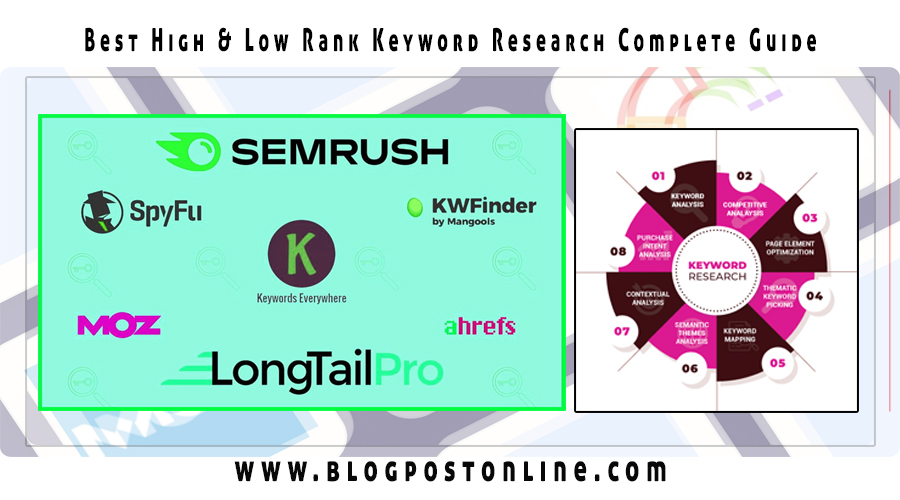Explore this comprehensive guide to discover the best keyword research websites that can help you uncover valuable keywords for SEO, content creation, and PPC advertising. Learn how to evaluate and choose the right tools to boost your online presence and drive targeted traffic to your website.

Finding the best keyword research websites involves considering factors like the quality of keyword data, user-friendliness, features, and pricing. Here’s a step-by-step guide to help you find the best keyword research tools and websites:
How to Create Beautiful Best Blogging Website
- Understand Your Needs:
- Define your specific keyword research goals and requirements. Different websites/tools cater to different needs (e.g., SEO, content creation, PPC advertising).
- Free vs. Paid Tools:
- Decide whether you’re willing to invest in a paid keyword research tool or prefer to start with free options. Paid tools generally offer more features and data.
- Start with Google Keyword Planner:
- If you’re looking for a free tool, Google Keyword Planner is a good starting point. It’s designed for Google Ads but can be helpful for SEO keyword research tool.
- Explore Popular Paid Tools:
- Research and consider popular paid keyword research tools like:
- SEMrush: Offers comprehensive keyword data, competitor analysis, and more Best Blog Post Online.
- Ahrefs: Known for its robust backlink and keyword research features.
- Moz: Provides insights into keyword difficulty and competitor analysis.
- Ubersuggest: Offer Best keywords research, Best content ideas, and competitive analysis keyword.
- Research and consider popular paid keyword research tools like:
- Read Reviews and Comparisons:
- Look for reviews, comparisons, and user feedback on these tools to get an idea of their pros and cons.
- Trial Periods and Free Trials:
- Many paid tools offer trial periods or free trials. Take the advantage of these to keywords test the tool’s functionality or see if it meets your keyword tool needs.
- Consider Specialized Tools:
- Depending on your niche or industry, you might benefit from specialized keyword research tools. For example, if you’re in e-commerce, tools like MerchantWords could be valuable.
- Check Data Accuracy:
- Ensure that the tool provides accurate keyword search volume and difficulty data. Accuracy is crucial for effective keyword research.
- User-Friendliness:
- Evaluate the tool’s user interface. It should be easy and to keyword search navigate and understand tools.
- Keyword Suggestions:
- The tool should provide keyword suggestions related to your primary keywords. Look for features that generate long-tail keywords and related terms.
- Competitor Analysis:
- Many tools offer competitor analysis features. Check if the tool can help you understand your competitors’ keyword strategies.
- Price and Budget:
- Consider the your own budget and the pricing structure of the keywords research tool. Some tools offer tiered pricing plans, so choose one that aligns with your needs and budget.
- Customer Support:
- Check if the tool offers good customer support in case you encounter issues or have questions.
- Updates and Maintenance:
- Look for tools that are regularly updated and maintained to ensure they stay relevant.
- Community and Resources:
- A strong user community and educational resources (blogs, tutorials, webinars) can be a valuable asset.
- Compatibility and Integration:
- Ensure that the tool integrates with your existing software and platforms.
- Security and Privacy:
- If you’re concerned about data security, inquire about the tool’s privacy and security measures.
- Feedback and Trial:
- Before committing to a paid subscription, gather feedback from your team or colleagues, and make use of any trial periods offered by the tool.
What is Technical Analysis and Best Trading Statergy Free Complete Guide
By carefully considering these factors and testing out a few options, you can find the best keyword research website or tool that suits your specific needs and goals. Keep in mind that your choice may evolve as your requirements change, so be open to exploring new tools as they become available.